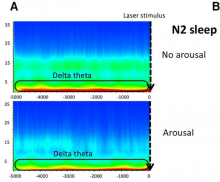Conference "Dyspraxies ou TDC : apport des fonctions neuro-psychomotrices standardisées et normées (NP-MOT)"
Au bâtiment IDEE, 59 Boulevard Pinel, 69500 Bron
Important : compte tenu des conditions sanitaires actuelles et des nouvelles directives, le nombre de place est limité à 24 personnes.
ou en visioconférence
Training sessions for M2 oral defense
Amphitheater Neurocampus Michel-Jouvet (Bron)
Baptiste Barrillot defense thesis - Deciphering the sleep of lizards
En raison de la situation sanitaire actuelle, la soutenance se fera en comité restreint avec retransmission en visioconférence.













